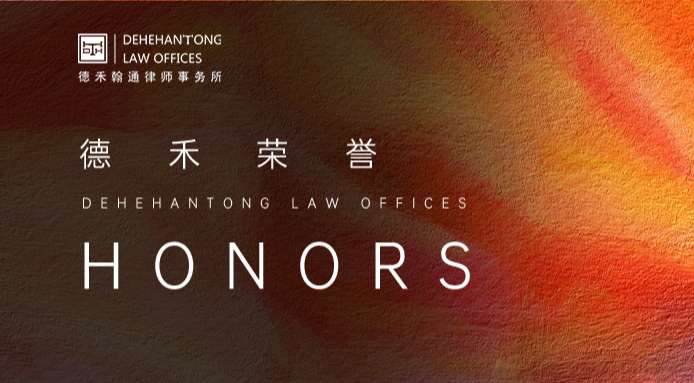Key points of communication between a lawyer and the family of a criminal suspect before requesting arrest
This article intends to share with young lawyers the key points of communication between lawyers and the families of criminal suspects before requesting arrest, aiming to guide young lawyers to understand the working ideas of public security, procuratorial and judicial organs, improve the communication efficiency between lawyers and public security personnel handling cases, and enhance the case-handling skills of young lawyers. If a criminal suspect is criminally detained, the lawyer should first communicate with the family.
I. Principles of Communication
First of all, lawyers need to master two major principles of communication. The first is to listen. A lawyer must first listen comprehensively. During the listening process, the specific information that lawyers need to capture will be elaborated in detail in this article. The second is to ask questions. Based on listening, ask targeted questions according to professional experience, and further answer the family members' doubts.
The ideal effect of communication is to enable the family to fully understand the possible outcome of the case, the litigation process, the lawyer's defense work, and rationally deal with the final trial result of the case.
Ii. Key Points of Listening, Asking Questions and Answering
Understand the charge and the period of criminal detention stated on the criminal detention notice
(1) Understand the charge on the criminal detention notice
Although the charges stated on the criminal detention notice may differ from those determined by the public prosecution initiated by the procuratorate or the court's judgment, after all, criminal detention is only at the initial stage of the entire criminal litigation process. As the subsequent investigation deepens and the evidence is perfected, there is a possibility that the charges involved by the criminal suspect may change or increase or decrease. However, it does not prevent us from initially judging the charges involved by the criminal suspect, the difficulty of handling the case and the possible range of statutory penalties based on the charges.
(2) Pay attention to the time of criminal detention stated on the criminal detention notice
It is very important to pay attention to the duration of criminal detention. Because the family members may not come to a lawyer immediately after receiving the notice of criminal detention. We need to determine the investigation stage and possible investigation content of this case based on the date of criminal detention to the date when the family consulted a lawyer. In the two situations where a criminal suspect has just been placed under criminal detention and has been placed under criminal detention for more than twenty days, the work that the lawyer urgently needs to carry out and the content of communication between the lawyer and the family will be different. Having understood the length of the period during which criminal detention has been carried out, we can determine how to proceed with our subsequent criminal defense work, so as to be targeted and effective.
2. Understand the relevant information of the case from the perspective of the family members
Although the case information obtained from the perspective of the family members at this time is usually not very comprehensive and accurate. It is possible that the criminal suspect himself has committed certain acts but does not believe that he has committed criminal acts. For instance, in P2P joint crime cases, if the suspect is merely an ordinary employee, he may not be familiar with the entire structure of the criminal group and so on. So, the family members may not be particularly familiar with the entire case situation. In addition, in order to reassure their families, the criminal suspect might not have informed them of some matters.
However, after all, communication with the family members is the first important channel for lawyers to obtain case information when taking on a case. Lawyers should still try to adopt the questioning approach as much as possible to understand more possible information about the case from the perspective of the family members, focusing on the four elements of the crime and the statutory and discretionary sentencing circumstances.
3. Provide legal consultation
Given that the information the lawyer acquires from the family members may not be comprehensive or accurate. So at this stage, the legal consultation provided by lawyers should cover a relatively wide range of topics. For instance, the criminal detention document might be charged with A. However, after the lawyer made A comprehensive judgment based on the information obtained from the family, it was believed that it might involve charge A, Charge B, or even charge C, or there might be disputes over the determination of Charge A and Charge B. Lawyers should explain to the family all the possible charges that the criminal suspect may be suspected of, so that the family can have a clear understanding. At the same time, a preliminary judgment should be made on the possible statutory sentence of the criminal suspect, the possible statutory sentencing circumstances, the current discretionary sentencing circumstances, and the possible direction of the case, so that the family can understand what might happen to the case in the future.
4. Understand the evidence or clues of evidence that prove innocence or lesser guilt
Lawyers can learn from the family whether there is any evidence or evidence leads at present that can prove the innocence or lesser guilt of the criminal suspect. For physical evidence and documentary evidence, lawyers can collect and fix them, etc. However, for verbal evidence, it is recommended that lawyers submit it to the judicial authorities in the form of evidence leads, and the public security organs will fix the relevant evidence in the form of inquiry (interrogation) records. Because the risk of changes in verbal evidence is relatively high, it may pose potential professional risks to lawyers.
5. Understand the willingness to reconcile (if any)
For cases involving victims (units), lawyers need to understand whether the family members have the willingness to make compensation and their ability to do so at the moment. This is to help the family and the victim (unit) reach a criminal settlement in a timely manner during subsequent defense work, which is conducive to obtaining circumstances for lenient punishment at the discretion of the court.
6. Interpret the criminal procedure and the legitimate rights and interests enjoyed by criminal suspects and their families
The criminal litigation procedure is relatively complex. How to present a clear and easily understandable criminal litigation procedure to the family members, and through the display of the litigation procedure, highlight the complexity of the work that lawyers need to carry out, is something that lawyers need to think about and constantly improve.
Encourage everyone to present the criminal litigation process to the family in a concrete way, because only when the lawyer clearly explains the complex criminal litigation process to the family, what work the lawyer will carry out after entrusting, how these works can help the family and the criminal suspect, and reminds the family to pay attention to the corresponding legitimate rights and interests of the criminal suspect, will the family recognize the value of the lawyer's work Value comes with price.
7. Clearly explain the job responsibilities of a lawyer
Lawyers should clearly explain to the family the legal work to be carried out at each stage of criminal proceedings. After the initial communication with the family, the lawyer will have a framework for the defense plan. The lawyer should explain to the family the original intention and fundamental purpose of the defense plan design, and at the same time understand the family's thoughts on the initial defense plan.
In addition, it cannot be ignored that lawyers should guide the family members to have reasonable expectations of the case, and avoid the family members denying the value of the lawyer's work in the defense process after the fact due to having unrealistic expectations of the case.
8. Guide the work that family members can cooperate with
Based on their professional experience, lawyers can guide the family members to collect objective evidence or evidence clues that are favorable for the suspect's innocence or lesser guilt, and guide the family members to do some sentencing circumstances that can create a lenient punishment at the discretion of the court. For instance, in cases where there are victims, the victims may have suffered personal injury or property damage. Lawyers can guide the families to compensate the victims, obtain their forgiveness, and reach a criminal reconciliation agreement.
9. Communicate with the family again after the meeting
The points 1 to 8 mentioned above are all the contents that the lawyer needs to communicate with the family of the criminal suspect before meeting with them. After the first meeting, the lawyer needs to have further communication with the family. The scope of communication includes but is not limited to the charges, basic facts, detention facilities, compulsory measures, case-handling authorities, litigation procedures, physical conditions, possible directions of the case, defense work that has been carried out, and defense work to be carried out, etc.
The principle of introducing the case to the family members is that the extent of the introduction should vary depending on the stage of the case. If it is before a public trial, it is recommended to give a brief introduction to the case. As the court session has not yet begun, verbal evidence is prone to change and objective evidence may be destroyed. Therefore, the specific details of the case should not be provided. It should also be emphasized that the meeting record must not be shown to the family members.
Iii. Precautions During Communication
Understand and patiently guide the anxious emotions of the family members
As criminal defense lawyers, we have a thorough understanding of the entire criminal litigation process. However, for the family members, they are often encountering criminal cases for the first time, especially if the criminal suspect is detained. They usually feel anxious about the subsequent development of the case. The unknown is the greatest fear. Lawyers need to communicate with the family members and understand the basic case from their perspective. At the same time, the lawyer needs to communicate with the case handler of the public security organ to understand the specific case and decide on the content of the criminal defense work that the lawyer will carry out subsequently.
2. Highlight the professional and emotional value of lawyers
One of the values of a lawyer lies in the fact that they can not only provide professional legal consultation, make an initial judgment on the direction of the case, inform the family and the criminal suspect of what might happen in the future and what defense work needs to be carried out; Moreover, eliminating the fear of family members and criminal suspects, alleviating their anxiety, and providing necessary psychological support reflect the additional work value of criminal defense lawyers.















